The Uses of Convention

Nick Cole's Strange Company 3 is coming out April, so I started reading the first Strange Company again this week. And that got me to thinking about the use of convention in telling stories. We cannot truly understand literary genres without understanding the conventions that comprise them. Yet convention is an underdiscussed topic at present, because the dominant forms of literary style in early twenty-first century English literature overemphasize uniqueness.
All art is equally conventionalized, but we do not ordinarily notice this fact unless we are unaccustomed to the convention. In our day the conventional element in literature is elaborately disguised by a law of copyright pretending that every work of art is an invention distinctive enough to be patented. Hence the conventionalizing forces of modern literature - the way, for instance, that an editor's policy and the expectation of his readers combine to conventionalize what appears in a magazine - often go unrecognized. Demonstrating the debt of A to B is merely scholarship if A is dead, but a proof of moral delinquency if A is alive. This state of things makes it difficult to appraise a literature which includes Chaucer, much of whose poetry is translated or paraphrased from others; Shakespeare, whose plays sometimes follow their sources almost verbatim; and Milton, who asked for nothing better than to steal as much as possible out of the Bible.
–Northrop Frye, The Anatomy of Criticism, Second Essay

Contemporary writing styles tend to cluster on the right-hand side of Northrop Frye's spectrum of convention. But Strange Company is written using explicit conventions, which makes it stand out to me.
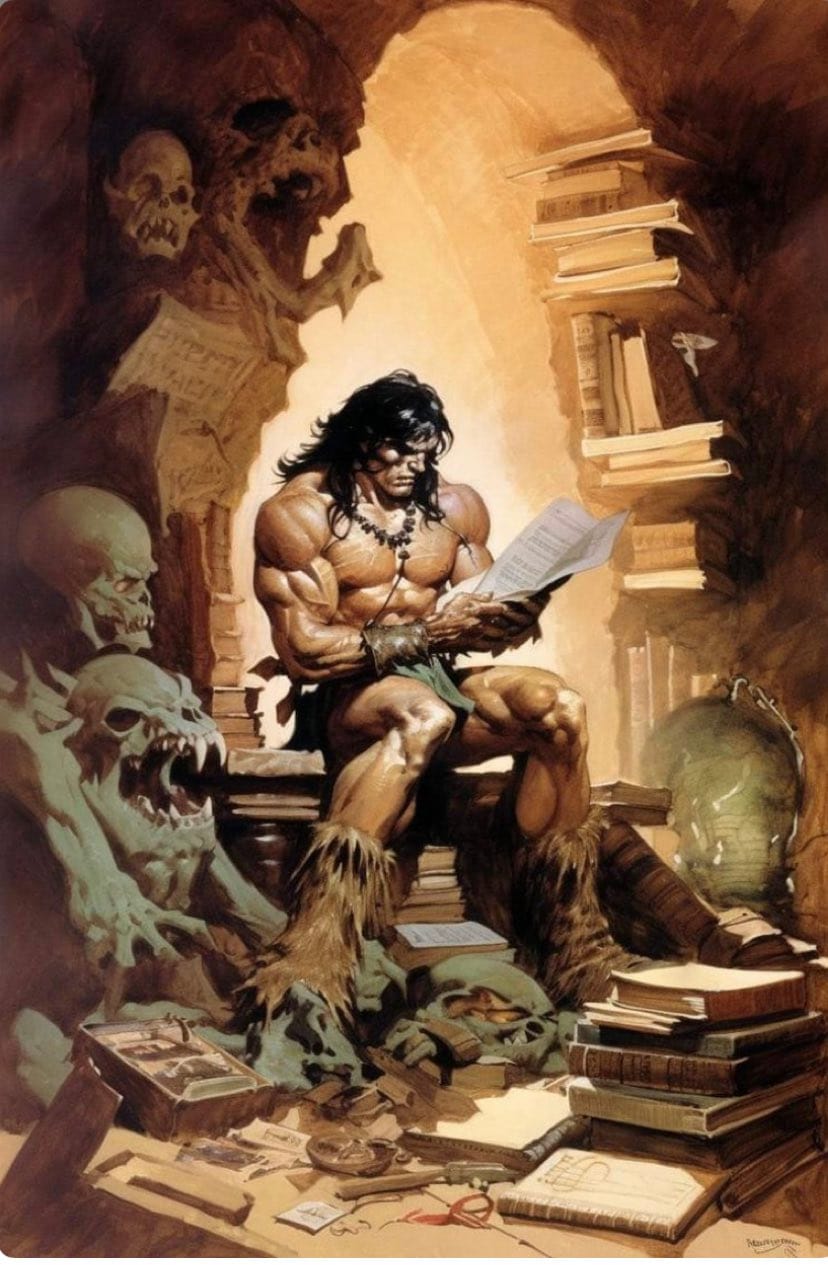
In the past, I have said that Nick Cole's books such as The Red King, which pull heavily on pop cult references, are pastiche, but now I think that isn't quite right. Partly, I think the connotation of the term is slightly pejorative, and that doesn't give Cole the credit I think he deserves. But also, if you look at the most common examples of literary pastiche, what you find are cases where what has been imitated are the externals of the character and the setting, but the style and the core of the character can be quite different from and even discordant with the original.
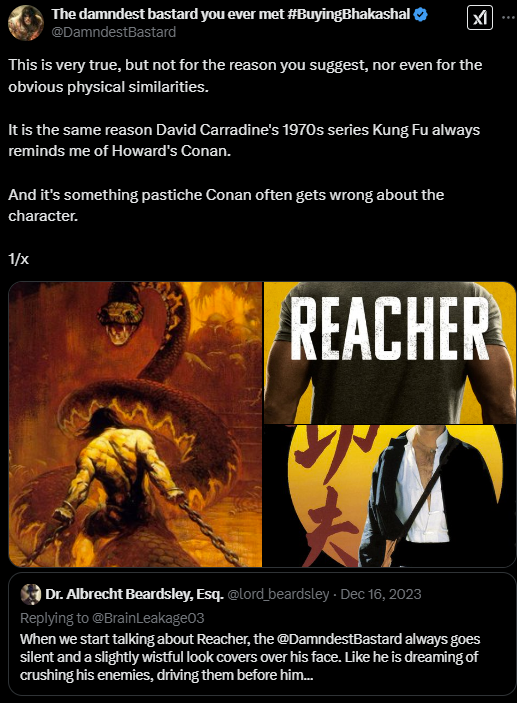
Take Conan, for example. Lin Carter and L. Sprague de Camp wrote Conan pastiche, but I'm not convinced either of them really succeeded at imitating Howard's prose, which is structurally very complex. Howard's Conan is also much smarter than many of his enemies perceive him to be, to their detriment. This however likely does not match up with the popular conception of Conan, the embodiment of the dumb barbarian. We can likely trace this back to some combination of mid-century Conan pastiche and Arnold's role in John Milius' movie adaption.
The other literary character who is widely featured in pastiche is Sherlock Holmes. But many imitations or adaptions of Holmes miss just how very odd of a man he was in Doyle's stories, with the possible exception of Robert Downey Jr.'s version in the Guy Ritchie movies. Many other versions gloss over Holmes self-experimentation with cocaine or his social awkwardness.
Holmes is a little too scientific for my tastes—it approaches to cold-bloodedness. I could imagine his giving a friend a little pinch of the latest vegetable alkaloid, not out of malevolence, you understand, but simply out of a spirit of inquiry in order to have an accurate idea of the effects. To do him justice, I think that he would take it himself with the same readiness.
–Sir Arthur Conan Doyle, The Complete Sherlock Holmes, Barnes and Noble Classics (2003) pg 9
Pastiche as I have sketched it here is not mere imitation, it is an attempt by another author to continue the original story with the original characters. There is something in romance that is infinite and without bound. The desire that the story should go on forever is a reflection of that.
The cloud under which pastiche labors is that reducing the cloud of references and inspirations of a memorable story to the more or less faithful imitation of just one character or just one work tends to flatten the result.
This continuation without end is not what I think Cole is doing in Strange Company, or indeed in the rest of his considerable output which falls along similar lines. Despite the obvious similarities to Glen Cook's The Black Company, Strange Company isn't merely an attempt to extend that storyline or those characters in the way that Carter or de Camp extended Conan.
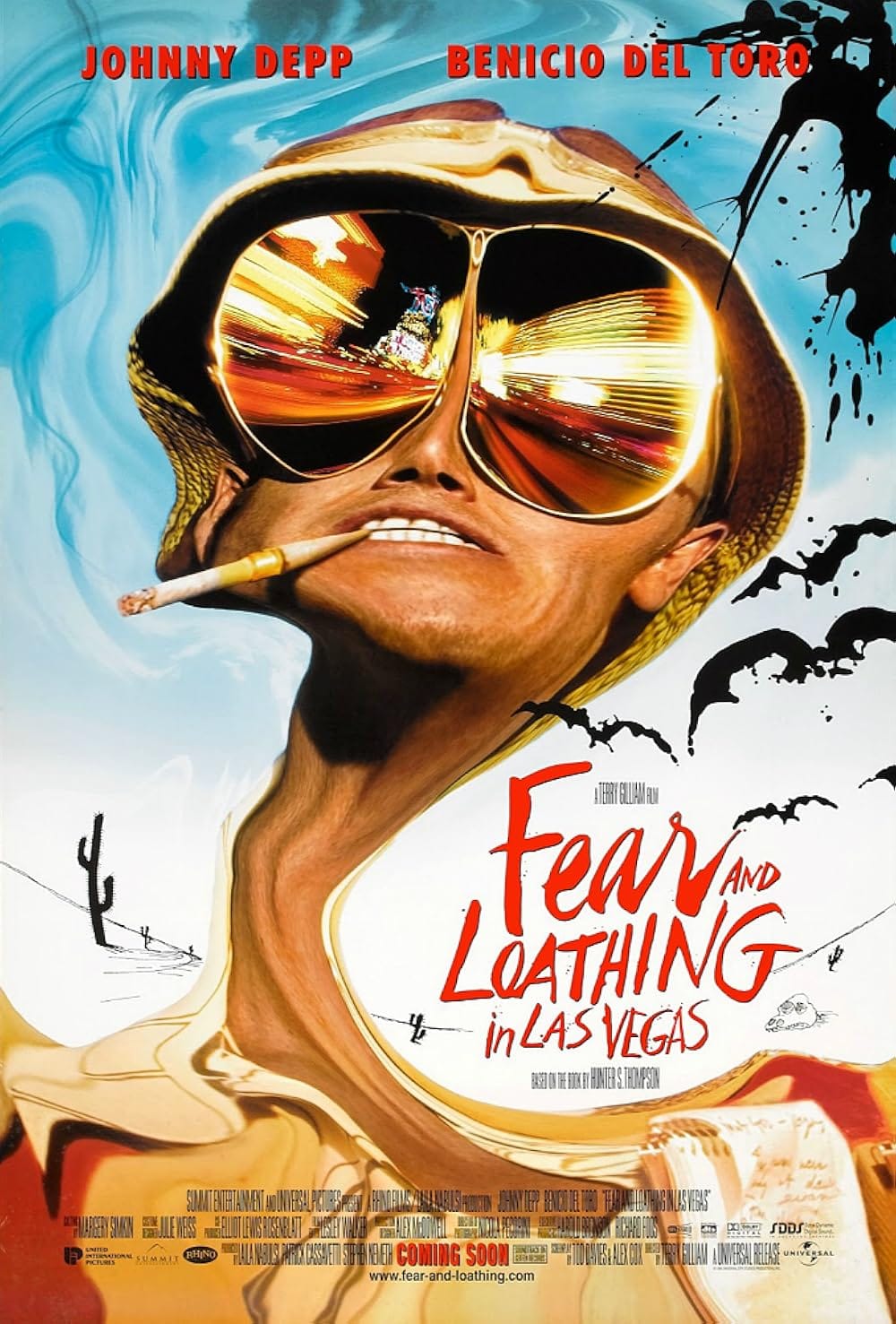
For example, while the wizard Stinkeye in Strange Company is clearly a cousin to Tom-Tom and One-Eye in The Black Company, Cole fills out his mercenary unit with a whole platoon of freaks that draw on different sources for their inspiration. Such as Chief Cook the psyops specialist, who is as if Hunter S. Thompson had lived in the Warhammer40K universe. Or Nether, the ethereal science experiment gone wrong. These are characters that have no clear precedent in The Black Company, and indeed they would not have matched the setting. Yet they are at home in Cole's Strange Company universe.
Strange Company as a whole pulls freely from disparate sources, which I think is potentially within the definition of pastiche, but the effect is also very different from what you can see in the Conan and Holmes pastiche examples. Here, Cole is using multiple sources as inspiration, but then creating something new from that combination.
One of the things that is at the heart of explicit convention is an author who wants to take a story and tell it in their own way. Sometimes, this can be contemptuous in tone, and other times it is a sign of the deepest respect. But in either case, the author is using a specific story as a point of reference and building from there.
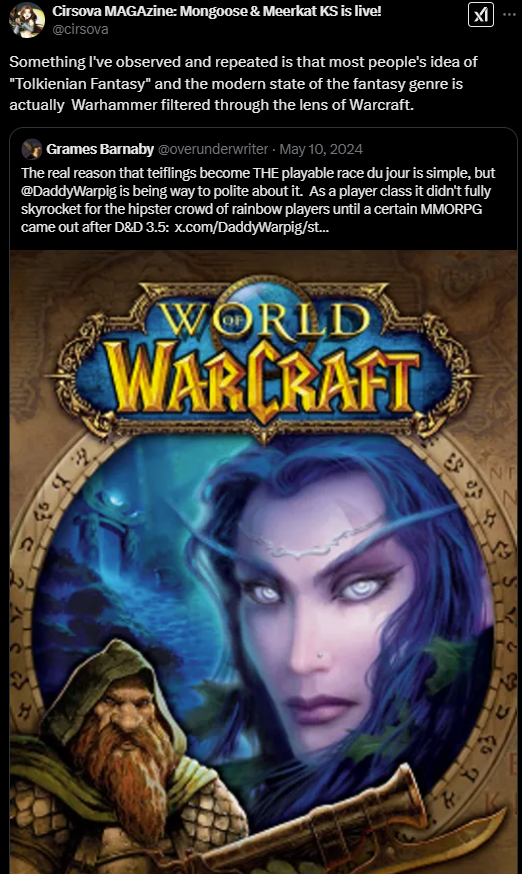
This is how convention helps to define genre. But also, note the difference between using specific stories for inspiration and using an abstraction for inspiration. In my comparison of Frieren and Dungeon Meshi, I noted the phenomenon of "pink slime" fantasy which arises when all the varied stories in 20th century fantastical literature are passed through a genre grinder to produce a homogenous output.
The result is a kind of sameness in everything, and I think part of the cause is a lack of explicit convention. The combination of social mores and copyright law that pushes authors to the right on the convention spectrum means that genre itself is used for a source of inspiration and convention. But if you do that, everything will become more generic, which is after all what "genre" means. I'm here to remind authors that you do not need to do this, and Strange Company can serve as your existence proof that it is possible.
There is another benefit to using explicit convention, and that is to dislodge tropes from their position. Last month I had a conversation on X/Twitter about the difference between tropes and conventions. Tropes aren't wrong per se, what they are is dead.
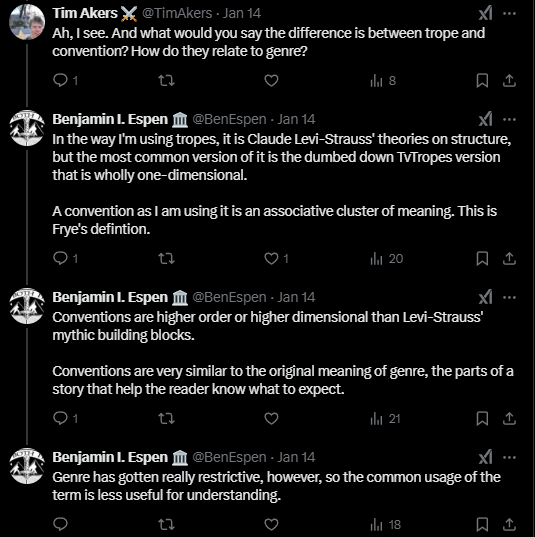
Tropes have the same relation to convention that a cadaver has to a human. You can learn a lot by dissecting tropes, but you also can't do that without your subject being dead. Conventions that are embodied in archetypes are living things that will push back mimetically on an author or on a reader. The way that you get living archetypes instead of dead tropes in a story is by using other stories as material.
It is not only the inexperienced reader who looks for a residual originality in such works. Most of us tend to think of a poet's real achievement as distinct from, or even contrasted with, the achievement present in what he stole, and we are thus apt to concentrate on peripheral rather than on central critical facts. For instance, the central greatness of Paradise Regained, as a poem, is not the greatness of the rhetorical decorations that Milton added to his source, but the greatness of the theme itself, which Milton passes on to the reader from his source. This conception of the great poet's being entrusted with the great theme was elementary enough to Milton, but violates most of the low mimetic prejudices about creation that most of us are educated in.
–Northrop Frye, The Anatomy of Criticism, Second Essay
Strange Company also illustrates another aspect of the power of living archetypes. The concepts of an archetype in explicit convention can be communicated to the reader even if that reader is unfamiliar with the source. I know this because I've never read anything in the immense WH40K corpus, and yet the inclusion of conventional elements in the story from that source are neither mysterious nor jarring. I think that a reader's appreciation for the inclusion of explicit convention is deepened by familiarity with the source material, but it is not required.
Thus, part of what makes Strange Company unusual among the many books it could plausibly be compared to is that it gives you explicit links to its inspiration, but also manages to tell its own story. Influences as varied as Warhammer 40K, African mercenary outfits, and Planet of the Apes all get mashed together, but the result is nonetheless harmonious. That is because Cole puts it all in service to the story, a story about the broken and the rejected and the lost who still have some fight left in them.
This is also why I think it is better to bring over the influences in whole pieces rather than atomizing them into tropes. The influences add texture and meaning that would otherwise be missing. Explicit conventions are a solution to pink slime fantasy and whatever you want to call its equivalent in science fiction.



Comments ()